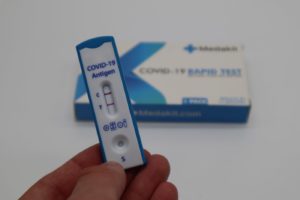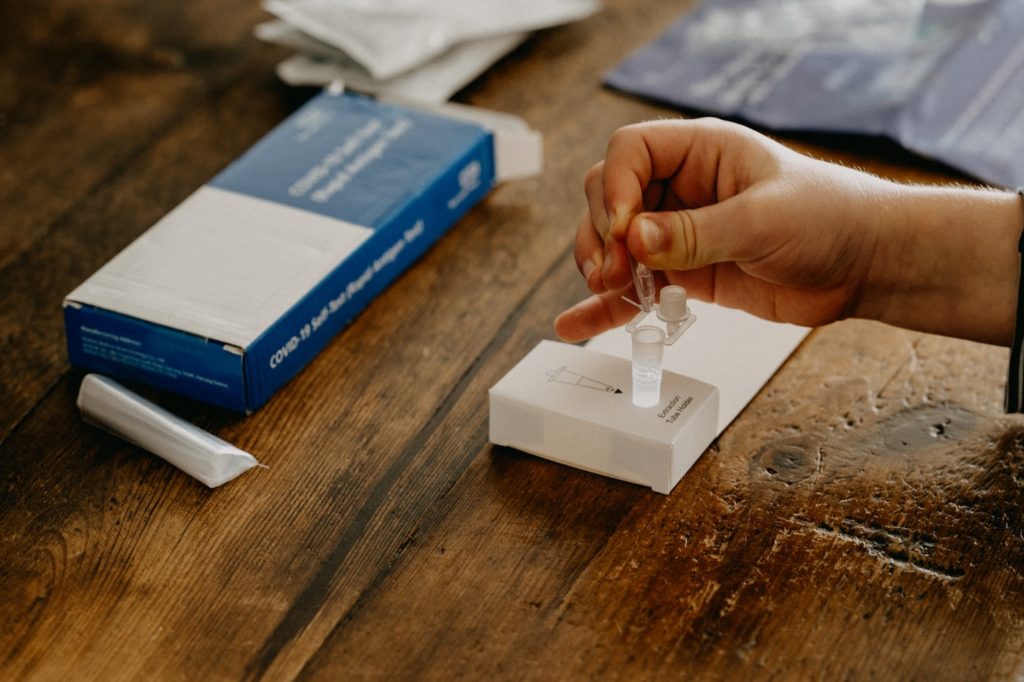With the government implementing strict restrictions to curb the spread of the virus, traveling has become more complicated. It has forced countries to close their borders and apply strict arrival and departure procedures.
Several countries only allow essential travel and continue to restrict entry to tourists. Nonetheless, present economic conditions have prompted some governments to loosen their immigration and quarantine restrictions.
Agencies like the Centers for Disease Control and Prevention (CDC) requires individuals entering the U.S. to present a negative COVID test result. So, if you’re outside the country and are planning to enter the U.S., don’t be surprised if an airline staff asks for your negative test result.
Different types of tests can confirm viral infection, like the rapid COVID-19 antigen testing, RT-PCR, and antibody test. Taking any of these tests will enable you to visit different places while ensuring that you are not spreading the infection to others.
What is the Covid-19 Antigen Test?
An antigen test for COVID procedure determines whether the patient has a virus or none. People of any age can perform this inside or outside a laboratory. It is one of the safest options to know if you have contracted the virus.
Experts explained that rapid COVID-19 antigen testing works best for symptomatic patients. To make sure it is more accurate, do the test after your symptoms first occur. This is the perfect time to find a large amount of virus present in your body.
Because of the low rapid antigen test price and quick results, medical frontline workers normally use this for screening patients in congregate housing settings, such as nursing homes. This enables them to determine people with COVID-19 and implement proper prevention and control measures.

How Long Does a Rapid Antigen Test Take?
As the name suggests, rapid antigen tests can generate results quickly, typically available in just 10 to 15 minutes.
With this test, you can secure your result certificate in a breeze if you ever decide to travel or fly within the country.
In addition, you can quickly determine whether you get the virus or not, giving you more time to take the proper precautions.
How Accurate is an Antigen Test for COVID?
According to experts, the accuracy of antigen tests depends on the time on the course of one’s infection. They explained that it has moderate to high sensitivity during peak viral load. Given this fact, rapid COVID-19 antigen testing is more advisable for symptomatic patients.
To ensure that it could deliver the most accurate result, the Food and Drug Administration (FDA) advised offsetting the decreased sensitivity of an antigen test. This is possible by taking a series of tests or simply using it several days after your first symptoms appear.
You have to keep in mind that positive test results from antigen tests indicate coronaviral antigens. However, it does not rule out bacterial infection or co-infection with other viruses.
Confirm the negative results multiple times, considering the context of the patient’s recent exposure to the virus.
Nevertheless, data showed that rapid COVID-19 antigen testing correctly ruled out infection in 99.5% of asymptomatic patients and 98.9% of people without symptoms.
How is the Antigen Test Done?
An antigen test works by mixing the specimen with a solution that releases specific viral proteins.
Similar to molecular tests, a sterile swab will be inserted into your nose or throat to obtain a specimen. Then, the next process is its application to a test strip or cartridge. A colored line will appear in the test line region if your sample contains the virus.
Apart from its easy-to-use feature, one of the best things about it is its availability. In fact, you can get it in pharmacies, clinics, or better yet, at Roots Through Recovery’s outpatient treatment center.

How is the Rapid Antigen Test Performed?
As a point-of-care test, it follows the usual laboratory setting. The kits usually have a built-in COVID antigen test apparatus, a viral extraction tube with viral lysis buffer, and a sterile swab.
When performing antigen tests, components should be handled carefully to ensure accurate results. You have to make sure that it is not frozen. It should reach a room temperature of 15 to 30-degree celsius before using it.
The package of an antigen test contains instructions on how to perform the procedure and interpret the test results. Experts noted that reading the test before or after the advisable time may result in false-positive or false-negative results.
It is critical to implement quality assurance procedures when performing rapid COVID-19 antigen testing. This way, you can prevent cross-contamination and inaccurate test results.
In cases when it returns multiple unexpected positive test results, it is appropriate to stop testing specimens. You must review all guidelines, disinfect the surrounding area, change gloves and other kits, and control specimens before restarting the rapid antigen test of the patient’s samples.
Travelling This Pandemic
The end of this global pandemic is still out of sight. Given this situation, people who love to travel will have to adjust to the new reality that COVID-19 tests will be a constant part of their routine.
The good news is that undergoing an antigen test will give you access to several travel spots and facilities and ensure that you are healthy and safe against the virus. In addition, you can be confident that people around you are safe.
Are you going on a holiday trip internationally or domestically? Most likely, your destination will ask you for a COVID test report.
Roots Through Recovery offers COVID testing in a safe environment with quick turnaround times. We ensure to carry out the best practices in providing cost-effective care. Call us at 562-379-9756 to book an appointment.




